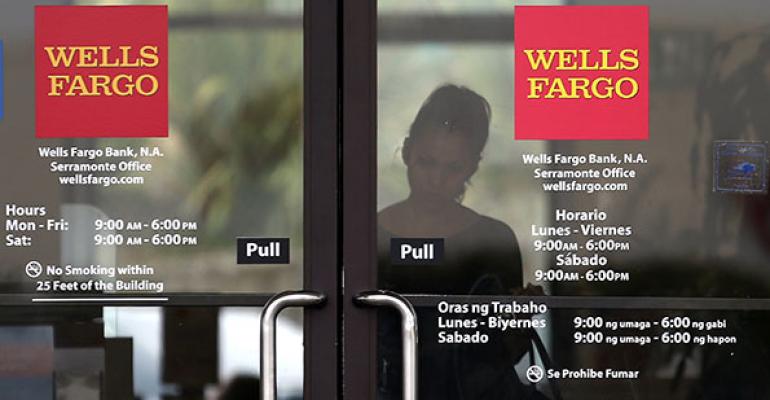By Laura J. Keller
(Bloomberg) --Wells Fargo & Co. will pay $1 billion to settle U.S. probes into mistreatment of consumers, the largest sanction of a U.S. bank under President Donald Trump, as the firm tries to resolve a year and a half of scandals across its operations.
The bank will pay $500 million in penalties each to the Consumer Financial Protection Bureau and the Office of the Comptroller of the Currency, according to a statement Friday from the CFPB. Wells Fargo warned shareholders last week it would soon face a fine of that size, which it planned to book retroactively in the first quarter. The bank remains under a Federal Reserve penalty that bans growth in total assets.
The settlement covers issues in Wells Fargo’s auto-lending and mortgage units. The bank revealed last year that it had forced unwanted insurance on customers who took out car loans, prompting investigations by U.S. and California regulators. It was also accused of imposing inappropriate charges for locking in interest rates on new home loans.
“We have said all along that we will enforce the law,” Mick Mulvaney, acting director of the CFPB, said in the statement. “That is what we did here.”
Chief Executive Officer Tim Sloan, who took the helm after scandals began erupting in 2016, shuffled management and promised to overhaul the bank’s culture and controls to rebuild public trust. Ensuing scrutiny -- some initiated by the bank itself -- exposed more misconduct that had festered for years. The company even caught the ire of Trump, who tweeted in December it should face heightened penalties for “bad acts against their customers.”
Wells Fargo announced preliminary results for the first quarter on April 13, saying net income came in at a better-than-expected $5.53 billion, or $1.12 a share. This would be the second straight quarter that legal costs hurt results. In the fourth quarter, Wells Fargo booked a record $3.25 billion charge related to regulatory investigations, sales practices and other matters.
“We recognize that it will take time to put all of our challenges behind us,” Sloan said in the April 13 statement.
The latest settlement matches the biggest-ever for the OCC. It is also a record for the CFPB, which hasn’t announcement any new enforcement cases since Mick Mulvaney started running the bureau in November. Mulvaney, a former GOP congressman who once called the bureau a “sad, sick joke,” has faced criticism from Democratic lawmakers for going easy on companies and slow-walking investigations.
Wells Fargo’s troubles began mounting in September of 2016, when authorities fined the firm $185 million for opening millions of accounts without customers’ permission. Then-CEO John Stumpf resigned, executives forfeited tens of millions of dollars in compensation, and, over time, much of the board was replaced.
In February, the Fed cited a pattern of abuses and lapses while imposing an unprecedented sanction: Unless it gets special permission, the bank can’t boost total assets beyond their level at the end of 2017 until it addresses its shortcomings.
The nation’s third-largest lender by assets still faces scrutiny, with the U.S. Department of Justice and Securities and Exchange Commission examining the wealth-management unit, a person familiar with the probes has said. Chief Financial Officer John Shrewsberry told journalists on April 13 that investigations into the division are “midway through.”
Shares of Wells Fargo have declined 15 percent this year, the worst performance in the 24-company KBW Bank Index.
--With assistance from Elizabeth Dexheimer. To contact the reporter on this story: Laura J. Keller in New York at [email protected] To contact the editors responsible for this story: Michael J. Moore at [email protected] Dan Reichl, Steve Dickson





